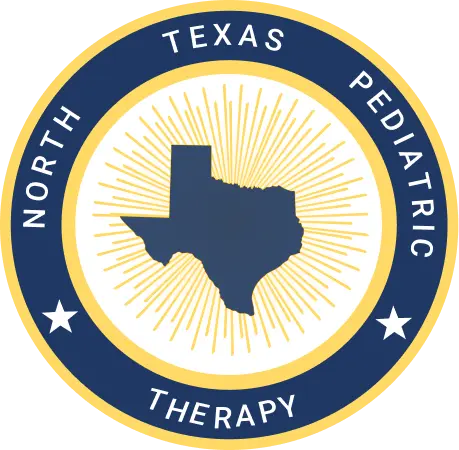Based on the present study, timing is a critical factor in children’s speech and language development. FNP in speech therapy can play a crucial role in the child’s development if launched early before the delays manifest themselves and the child loses the opportunity for improvement.
Early intervention speech therapy describes providing special services and assistance to children with communication difficulties or conditions affecting speech and language at a young age, preferably before three years. This proactive approach is intended to prevent such problems as soon as possible while the child’s mind is more receptive to new input and the formation of neural connections is at its highest.
The two highlighted research articles are important in presenting the significance of Early Childhood Speech Development. Language as a social interaction is one of the significant aspects of child development. It provides the basis for their capacity to speak, write, ponder, orchestrate, and respond to people. Deficits in communication may be severe and result in a wide range of problems in a child’s social, emotional, and cognitive development.
Read more about 5 Signs Your Toddler May Need Speech Therapy, A Complete Guide!!

Evaluating the Importance of Early Speech Therapy
Early speech therapy is crucial for several reasons:
- Neuroplasticity: In the initial years of life, a child’s brain is very impressionable and encodes learning and experience more effectively. Early intervention thus takes advantage of this crucial period of increased neuronal activity, through which the therapist can better focus on specific areas of speech and language growth.
- Prevention of secondary issues: Speech and language delays are known to have the following side effects: The children may develop behavioral problems, face social challenges, or experience poor performance in academic activities. These are some of the complexities that, when prevented or addressed early, early speech therapy can be instrumental in averting.
- Early identification and treatment: If a child can be seen early enough, they can be diagnosed and treated for speech and language disorders because once such a child is older, it may be difficult to treat.
- Parental involvement: When a child is first enrolled in speech therapy sessions, the speech therapist usually spends considerable time with the parents or caregivers to prepare them for how to help by offering the child recommendations and tools for facilitating speech development at home.
Early Intervention Programs For Speech Delay Program
Most societies have early intervention programs for speech delay that provide relevant services to children with such complications. A multidisciplinary team usually implements these programs, encompassing speech and language pathologists, occupational therapists, and early childhood educators, to provide unique intervention plans to address each child’s needs.
Speech Therapy for Toddlers
One of the typical intervention activities in speech therapy for toddlers is speech and language therapy. An SLP employs several strategies and procedures depending on the child’s area of need regarding speech and language development, including articulation, expressive language development, receptive language development, and pragmatic language development.
Therapy sessions may incorporate aspects such as plays, frolics, singing, and other exciting novel methods for young learners. They also involve parents by offering them coping techniques and activities to implement in their daily interactions at home in support of the child’s therapy.

Revealing the Early Speech Therapy Benefits for a Successful Life
When applied at the first stages, therapy provides many advantages that are not limited to solely enhancing a child’s speech rationales. Suppose these areas of communication are identified early, and early intervention and focus are placed on these delays or disorders. In that case, children are given the key to a world of possibilities and are set up for success for the rest of their childhood and beyond.
Speech-impaired students suffer from low self-esteem, lack of friends, violation of discipline, and poor performance in their studies, among other impacts that persist for more than a year. However, these problems can be reduced if intervention is offered early so that children can gain this confidence and be adequately prepared for making friends and schooling.
How To Enrich Early Childhood Speech Development Using Therapy
The early childhood speech development stage is one of the most sensitive periods in a child’s life, and with an appropriately designed speech therapy solution, a child can be given the right tools for this stage. SLP employs several evidence-based practices and strategies to assess and meet a child’s deficit and difficulties in oral and written language communication.
Of the suggested practices, play-based intervention is one of the most effective because it involves fun while learning. If the environment is correct, always encouraging and motivating the children to learn, then the child or children in question will be right for learning, improving the results.
A Helpful Approach
Early intervention programs for speech delay are considered holistic and multidisciplinary in their approach to a child’s communication problems. Early childhood intervention services are usually carried out by a multidisciplinary team comprising speech-language pathologists, occupational therapists, early childhood educators, and other related professionals who develop an individual education plan for the child.
Another benefit that can be noted is the combination of the different therapeutic technologies. Occupational therapy is also considered an aiding intervention in speech therapy since there may be fine motor and sensory problems that may affect the child’s communication. Preschool teachers also perform a very important function in promoting and enhancing language development and orchestrating educational social relations.
Unlock Your Child’s Full Potential with North Texas Pediatric Therapy!
North Texas Pediatric Therapy exemplifies this approach. Their dedicated team is committed to transforming the lives of children with special needs through personalized and compassionate care. They integrate various therapeutic technologies to address each child’s unique challenges.
Their services extend beyond speech therapy, incorporating occupational therapy to address fine motor and sensory issues that may impact communication. Preschool educators at North Texas Pediatric Therapy also play a crucial role in enhancing language development and fostering social skills within an educational context.
They focus on individualized care, ensuring each child’s needs are met with tailored strategies and interventions. By creating a nurturing environment and emphasizing compassion, excellence, and inclusivity, North Texas Pediatric Therapy empowers children to thrive and achieve meaningful progress in their communication skills and overall development.
The Road Ahead
It is notable for highlighting that each child requires different approaches, and early intervention in speech therapy can greatly improve the child’s ability to speak. Some children will recover very quickly, while for others, intervention may be of a more extended nature or a more complex kind. Positive behavioral changes, diligence, and teamwork among parents, therapists, and other practitioners help to get the best results.
So, by starting early intervention in speech therapy, parents and caregivers can give their children a sure start toward having good, strong communication skills that will be useful throughout their lives. For this reason, early intervention not only corrects timely Speech and language issues but also builds the pathway to success later in academics, interpersonal relationships, and personal life.
Contact us today to schedule a consultation and discover how our holistic, multidisciplinary approach can help your child thrive. Let us work together to create a brighter future for your child!


